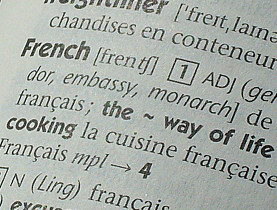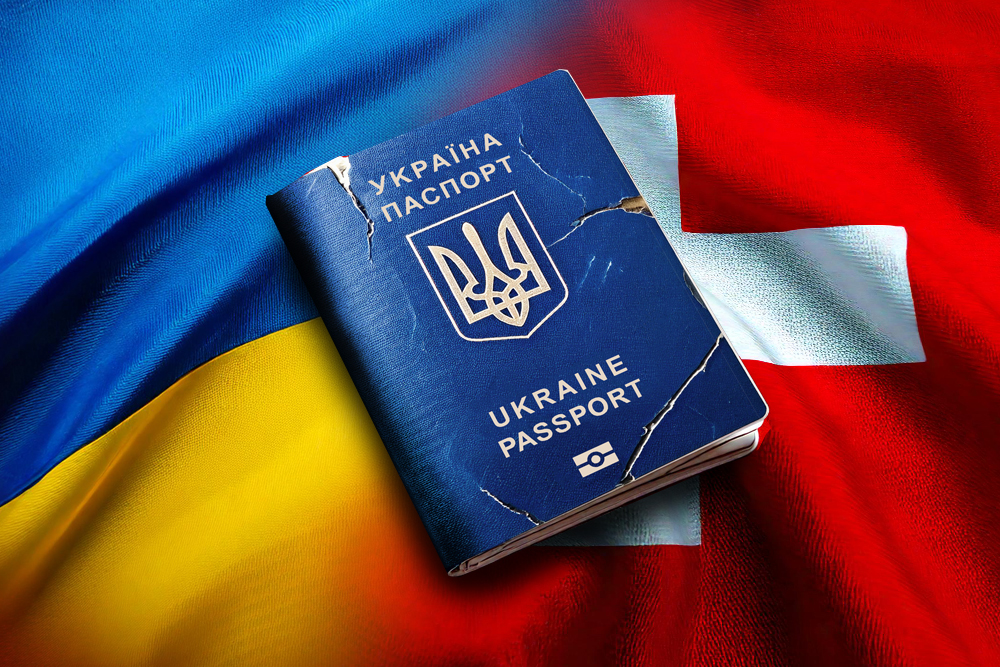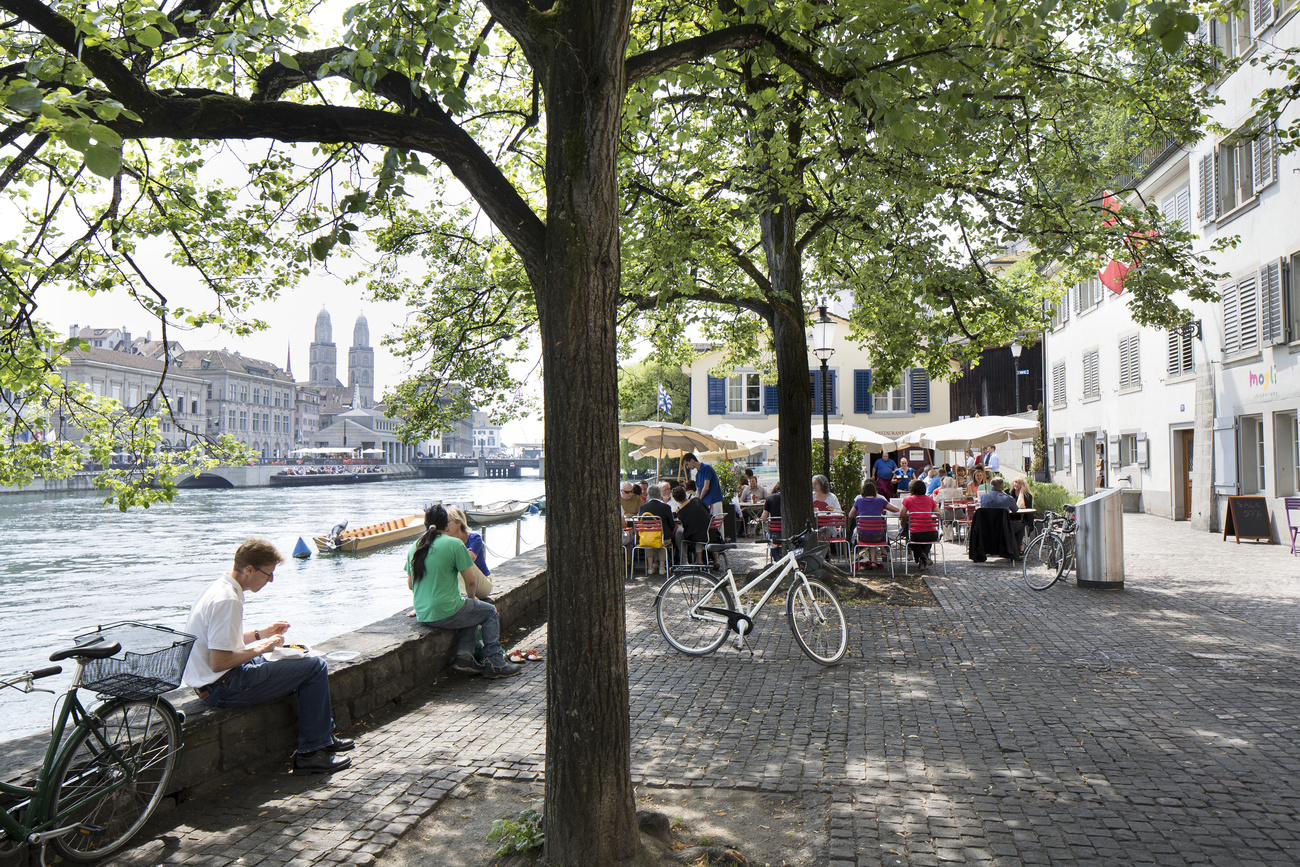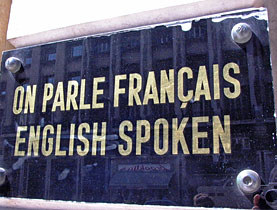French remains crucial to Swiss identity

Switzerland is joining the rest of the French-speaking world in celebrating the language of love and diplomacy this week.
With a population of 1.5 million French speakers, Switzerland is one of 32 countries that have French as an official language and it is a keen participant in the international celebrations.
The International Day of the French Speaking World is traditionally held on March 20. In the week beforehand, 60 events will take place in Switzerland, including exhibitions, concerts, plays, conferences, readings and film showings.
So what does it mean to Switzerland to have one fifth of its population speaking French?
Virginie Conti of the French Language Delegation, a semi-state committee that safeguards the position of French in Switzerland, sees it as an asset for the country, and not just because it connects Switzerland to economic and cultural markets.
“In a world which is moving more and more towards uniformity due to globalisation, Switzerland represents a small island of plurilingualism that defends linguistic and cultural diversity,” she told swissinfo
Identity
For linguistics professor Marc Bonhomme, it is also a question of identity. “French brings us linguistic and cultural diversity as well as guaranteeing the specificity of the country – without it what difference would there be between Switzerland and Germany?” he pointed out.
Bonhomme, who teaches at Bern University, believes these celebrations serve to enhance links between the diverse French-speaking countries of Europe, the Americas and Oceania.
It is also a time for reflection, according to Conti. “It’s about highlighting for a few days an important element of daily life, which is always present but not always dwelt upon,” she added
An official working language in many international organisations, and in the EU, French has long played a major role in international communication. But with the changing hierarchy of the world economy and the ever-increasing dominance of English in business and communication, the position of French is looking more uncertain.
There was a time when the royal families of Europe spoke French fluently. The Russian aristocracy had a better mastery of French than their national language. Now the new Eastern European members of the EU are relying more on English to communicate with other countries.
Era of English
“The challenge for French in the 21st century is to keep its international position in an era of globalisation that favours English,” Bonhomme told swissinfo.
Conti agrees but puts the focus on moving with the times. “French needs to become a modern language, adapted to the present day and in which speakers can feel at ease,” she said.
Various studies have shown that French-speaking Swiss have a somewhat ambiguous and complex relationship with their language.
“On the one hand they are proud of their French, compared to the “standard” French of France, … but at the same time they tend to feel a certain insecurity towards French speakers of the language. Many Swiss have a tendency to drop their accent when they are talking to French people,” Conti explained.
According to the organisers, the aim of this week’s celebrations is to deepen the knowledge of French in Switzerland, and to help maintain the link of all Swiss people to the language, whether they are French-speaking or not.
“The celebrations should be playful and festive without losing sight of the cultural diversity that is at stake,” said Conti.
The International Week of the French Language and the French Speaking World runs from March 10. to 20. The celebration is in its thirteenth year.
The theme of this year’s week is the discovery of the French spoken in the Americas, from Quebec and Louisiana to Haiti and the West Indies.
The organising committee has chosen to focus on the life and work of Swiss-born writer Auguste Viatte (1901-1993) this year.
The week of events has been organised by the French Language Delegation in collaboration with the foreign ministry, non-governmental organisations and institutions.
More than 100 Swiss embassies and representatives are also participating in the celebrations.
French is the majority language in the Western cantons of Switzerland – Geneva, Vaud, Valais, Jura, Fribourg and Neuchatel.
Some 175 million people speak French, making it the ninth most spoken language worldwide.
This rises to 264 million including those who have French as a second or subsequent language.
French is used as the first official language or co-official language in 32 countries.
The International Organisation of French-speaking world has 68 member states, including 13 observer members.

In compliance with the JTI standards
More: SWI swissinfo.ch certified by the Journalism Trust Initiative












You can find an overview of ongoing debates with our journalists here . Please join us!
If you want to start a conversation about a topic raised in this article or want to report factual errors, email us at english@swissinfo.ch.